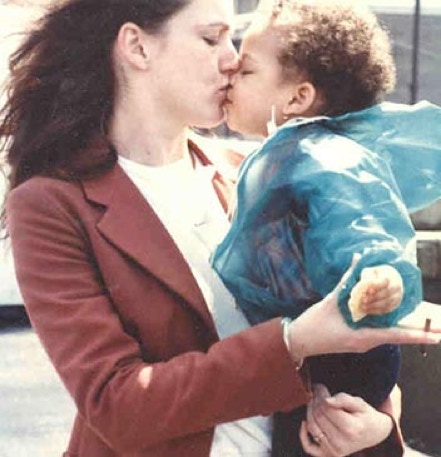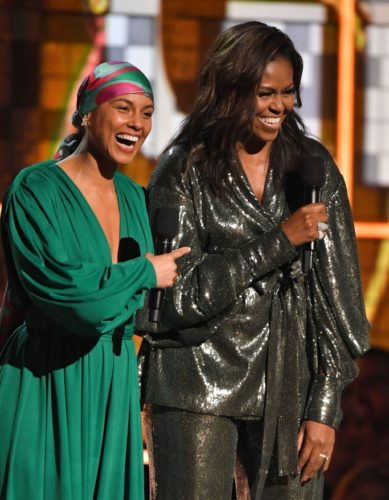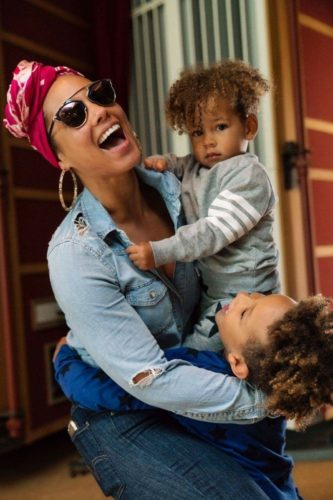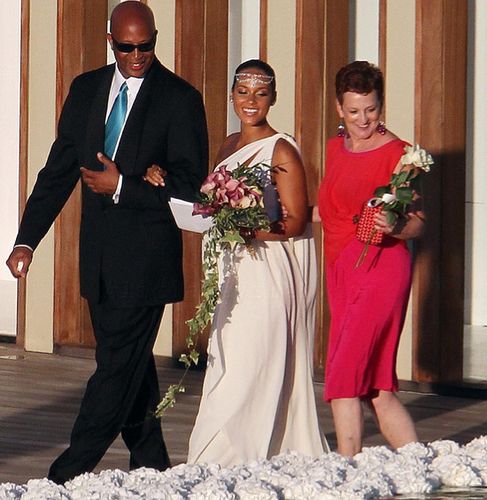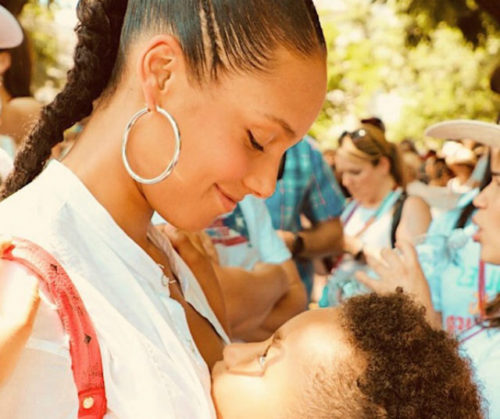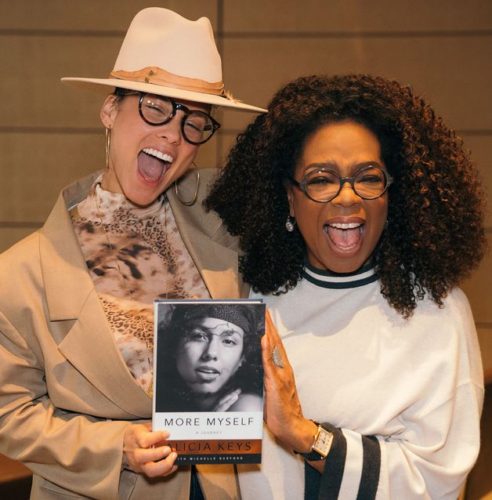More Myself
In More Myself—the first autobiography on Oprah’s imprint with Flatiron Books—15-time Grammy award-winning singer Alicia Keys shares her journey from dimming her light to please others, to discovering and embracing her own worth. With the authenticity that epitomizes Alicia’s artistry, More Myself is at once a riveting personal account and a clarion call to readers: to define themselves in a world that rarely encourages a true and unique identity.
BOOK EXCERPT | AN OPRAH BOOK | MARCH 2020
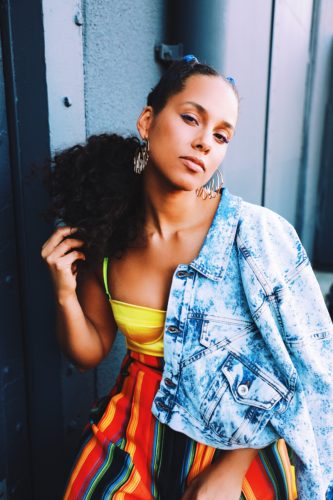
The autobiography of renowned singer-songwriter Alicia Keys spent five weeks on the NYT Best Seller list.
“The moment in between what you once were, and who you are now becoming, is where the dance of life really takes place.” —Barbara De Angelis
I am seven. My mom and I are side by side in the back seat of a yellow taxi, making our way up Eleventh Avenue in Manhattan on a dead-cold day in December. We hardly ever take cabs. They’re a luxury for a single parent and a part-time actress. But on this afternoon, maybe because Mom has just finished an audition near my school, PS 116 on East Thirty-third Street, or maybe because it’s so freezing we can see our breath, she picks me up. The cab inches crosstown before finally turning north into a stretch of Eleventh Avenue dotted with peep shows, massage parlors, and crumbling tenements. We pull up to Forty-Second Street, around the corner from our building. Something catches my eye.
My path to this place began in a city jungle, wove its way through the peaks and canyons of the music business, surpassed all of my wildest dreams, and carried me back, time and again, to a pair of questions: Who am I, really? And as I discover my true essence, am I brave enough to stand in that truth?
“Mommy?” I ask, pointing. I’ve climbed onto my knees on the seat and pressed my face, crowned with its usual frizz and my hair swept into box braids, right against the glass. “Why are they dressed like that when it’s so cold?”
Mom clasps my hand and pulls me back toward her while glancing out the window. There on the corner stand three women, each rubbing her hands together to stay warm. All are in brightly colored knit dresses with hemlines that end miles above their knees. One is wearing fishnet stockings that reveal flashes of her bare skin. Another has on black boots that extend up the full length of her thighs. None are wearing coats. As locals bundled up in puffer jackets scurry around them on the sidewalk, seeming oblivious to their presence but probably not, the women’s eyes dart back and forth to the other side of the wide boulevard. They look like they’re waiting for someone.
“Mommy,” I ask again, “how come they’re out there?”
My mother sweeps her long auburn hair to one side, draws in a breath, and looks over at me. “When people go through hard times, Ali,” she says slowly, “they often have to do things they don’t want to do. Those women are just trying to survive.”
I stare at my mother for a long moment, attempting to wrap my little-girl brain around what she has just told me. She doesn’t explain what a sex worker is or exactly how one earns money. I’m too young for that. She doesn’t tell me that the women are controlled by pimps, street hustlers who force them to turn tricks in exchange for drugs or cash. I wouldn’t have understood. What she does somehow convey is a truth I still carry with me: the women I’ve spotted aren’t on that corner by choice, but by circumstance. Without another word, I slide down into the cracked leather seat and make a silent agreement with myself. I will never be in a situation like that. Half-clothed. Vulnerable. Powerless. Exposed.
•••••
I am eleven. I already know I’ll one day be a singer. I’ve known that in my gut since I was four. Even still, my agent has been rounding up all kinds of gigs for me. One is to model bras and underwear for a department store catalog. I show up at the shoot, flat-chested and a little anxious, even with my mom at my side. Behind a dressing room curtain, I pull on the white padded bra and cotton panties. I then peer at myself, head to toe, in the full-length mirror, not sure how I feel about what I’ve signed up for. Moments later, I smile awkwardly into the camera, glancing over at my mom on the side. I don’t know why I was nervous, I think in an attempt to calm myself. This isn’t that bad.
And then, a few weeks later, the catalog arrives. “Here it is!” Mom calls out, holding it open to the page I’m on. I reach for the magazine and flop down with it on our couch. My heartbeat quickens as I study the photo. Until that moment, I haven’t quite realized that what happened in the privacy of a studio is now on full display for the whole world—my world.
“So, you mean, my friends are gonna see me like this?!” I say. Mom, probably surprised at my reaction, doesn’t respond. The picture is not at all racy, especially since my boobs are more like tangerines than grapefruits. Yet I still feel judged. Naked. Embarrassed. Exposed.
•••••
I am nineteen. In a few months, my first album will drop and my life will suddenly be divided into two distinct halves: all the challenges before Songs in A Minor, and all the miracles that followed. But I don’t know that yet. As 2000 draws to a close, all I know is that I’ve been booked to appear on a magazine cover, one of my first. In my business, publicity just comes with the job, particularly for a new artist who’s excited to break in. This is my shot, I tell myself, a chance for my music to get noticed. The stylists, my manager, the team at the record label—everyone is eager for this opportunity.
The photographer greets me with a firm handshake, and I immediately feel his vibe—strong and a bit pushy. A stylist has chosen my outfits, among them a pair of jeans, a jacket, and a white button-up shirt. As I dress, the photographer somehow convinces my team that he’ll need to shoot me alone. When I emerge from the dressing room, there’s just the two of us on set. “Open up your shirt a little,” he directs while firing off a flurry of snaps. My spirit is screaming that something is wrong, that this feels slimy. But my protests, lodged in the back of my throat, can’t make their way out. “Pull the top of your jeans down a bit in the front,” he urges. If I say no, what doors will be closed to me? I swallow my misgivings, tuck my thumb between the denim and my skin, and obey.
I’ve spent so many years withholding parts of myself, sacrificing my spirit to make others feel comfortable. But now, I’m done with pretending, with living in a prison of my own creation. I’m done with dimming my light.
That night at home, I cry harder than I ever have. This isn’t about me showing some skin, which I’ll do on my own terms, for my own purposes, in the coming years. It’s about feeling manipulated. It’s about being objectified. It’s about a crop of streetwalkers on a corner in Hell’s Kitchen and a girl who once made a pact with herself.
“What the hell is this?” my manager, Jeff, asks me one afternoon a few months later. He’s holding up the magazine cover. I stare at the image and do not recognize the woman staring back at me: midriff bare, nipples covered by her arm extended across her chest, the slightest hint of pubic hair spilling over the top of her jeans. Everything about the photo is wrong, from the pose itself to the lighting that makes me look washed-out. I am beyond embarrassed, ashamed that I’ve sold part of myself.
I now understand why the photographer wanted my team out of that room. A nineteen-year-old girl is more pliable than a set of her grown-ass managers. Had Jeff been in there, he would’ve voiced what I couldn’t at the time: Hell no. Close that shirt. Take your hand off your tit. And you’re not going to yank down your jeans. In fact, Jeff would’ve been over there pulling my shirt closed. The photographer clearly wanted a provocative image, but rather than disclosing that vision from the start, he led me into it.
On the day of the cover’s debut, I pass a newsstand where the magazine is on display. I almost throw up. I want to buy every copy on every stand around the world, just so no one will see me in a photo that does not represent who I am. I swear that I’ll never again let someone rob me of my power. It’s a promise I still work to keep.
•••••
I am here—in the present, standing on the shoulders of all who’ve paved my way, in awe of where my life has led me. My path to this place began in a city jungle, wove its way through the peaks and canyons of the music business, surpassed all of my wildest dreams, and carried me back, time and again, to a pair of questions: Who am I, really? And as I discover my true essence, am I brave enough to stand in that truth?
Those questions live at the heart of my story. Gathering the raw pieces of my experience and holding them up to the light has, for me, been a transformational exercise in truth telling. I’ve spent so many years withholding parts of myself, sacrificing my spirit to make others feel comfortable. But now, I’m done with pretending, with living in a prison of my own creation. I’m done with dimming my light. Writing this book has been about meeting myself, with all my wounds and vulnerabilities, exactly as I am—and then, at last, having the courage to reveal my full face. It has been about realizing that in order for the truth to set me free, I must first be brave enough to birth it.
I’m a person in process, from the me I once was to the me I am now. I’m also a breathing set of contradictions: a child who has known the greatest love there is, and one who longed for an affirmation that eluded me. I’ve been a builder of walls and a burier of feelings. I’ve been both someone in denial and a free spirit, an artist in hiding and a ’hood hippie. And all of those spaces and faces have led me to who I am now: Uncensored. Fearless. Awake.
On this part of my journey, I’m at last quieting the noise of our world—removing all the external distractions and opinions and judgments and tuning in to my own voice. I’m recognizing my own power and owning it. I’m finally trusting myself, believing I already have inside me the answers I most crave. And above all, I’m discovering who I am at my core—and becoming, day by day, more myself.
Excerpted from More Myself: A Journey. Published by Flatiron Books/An Oprah Book. Hardcover edition released on March 31, 2020.
Need a bestselling memoir on a tight deadline? E-mail Michelle@MichelleBurford.com
